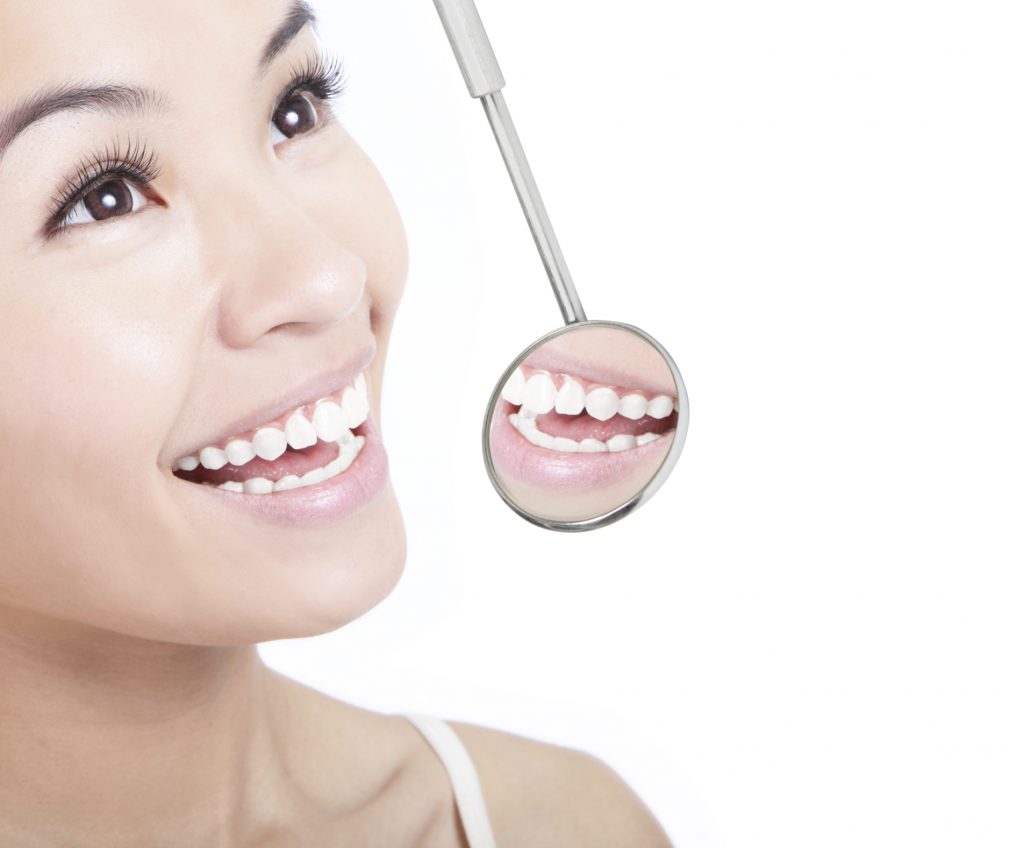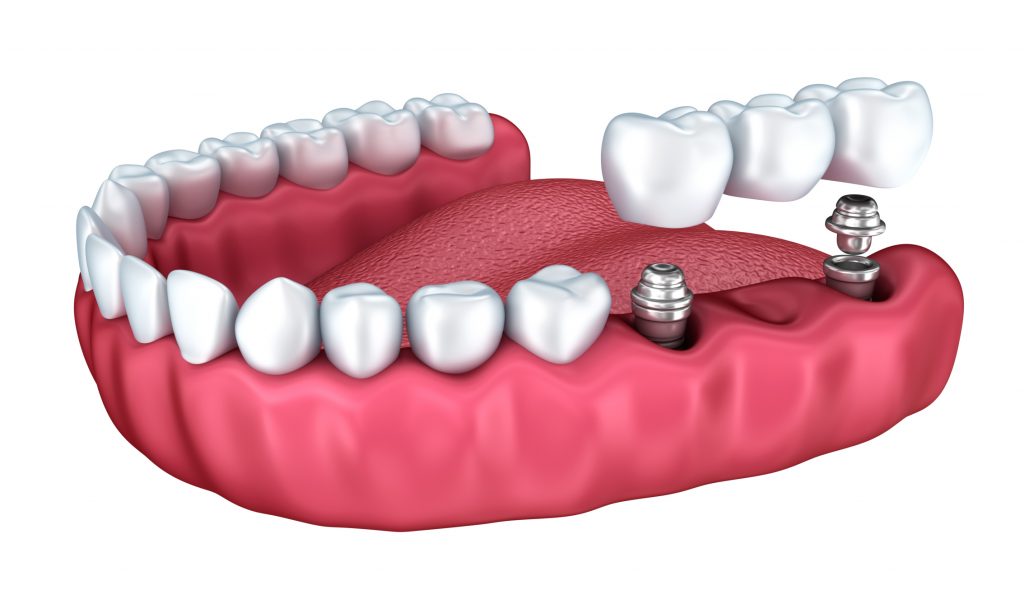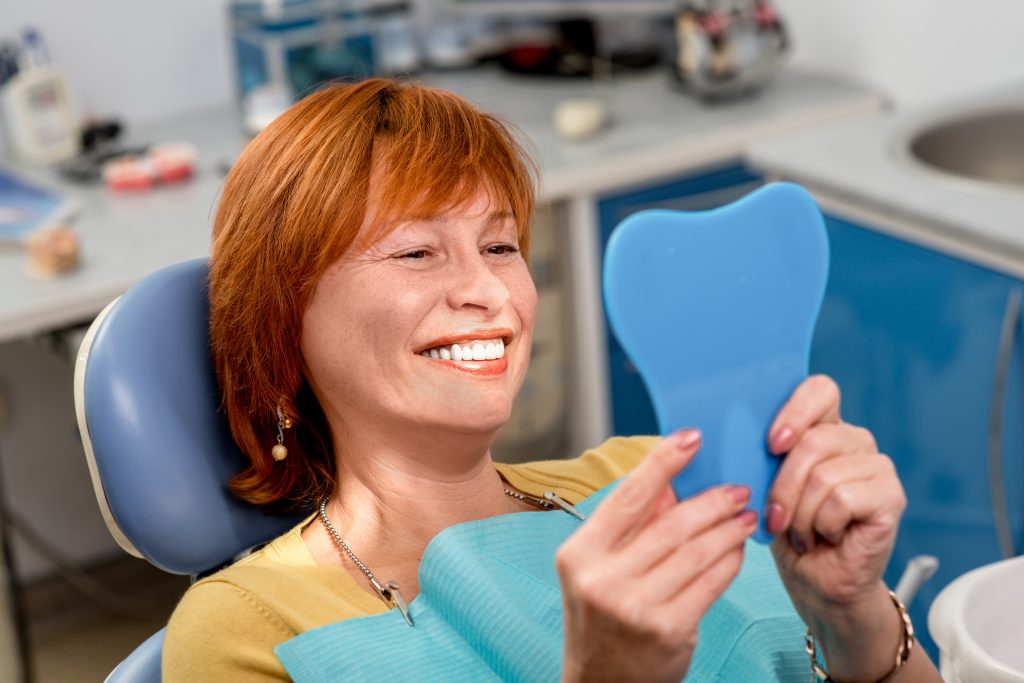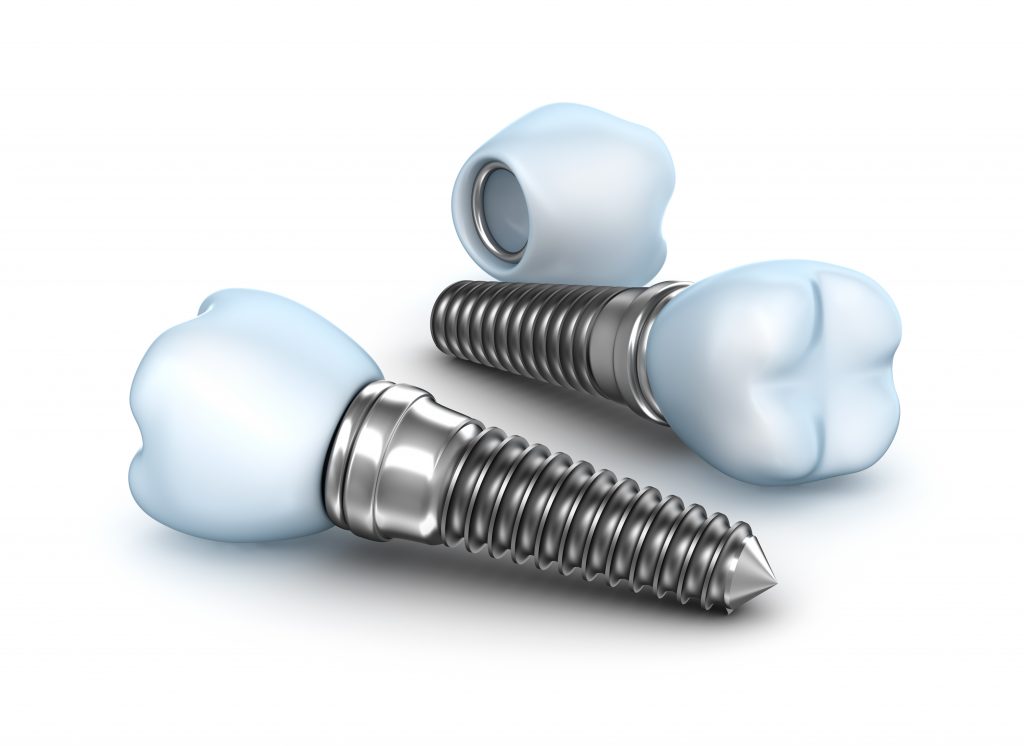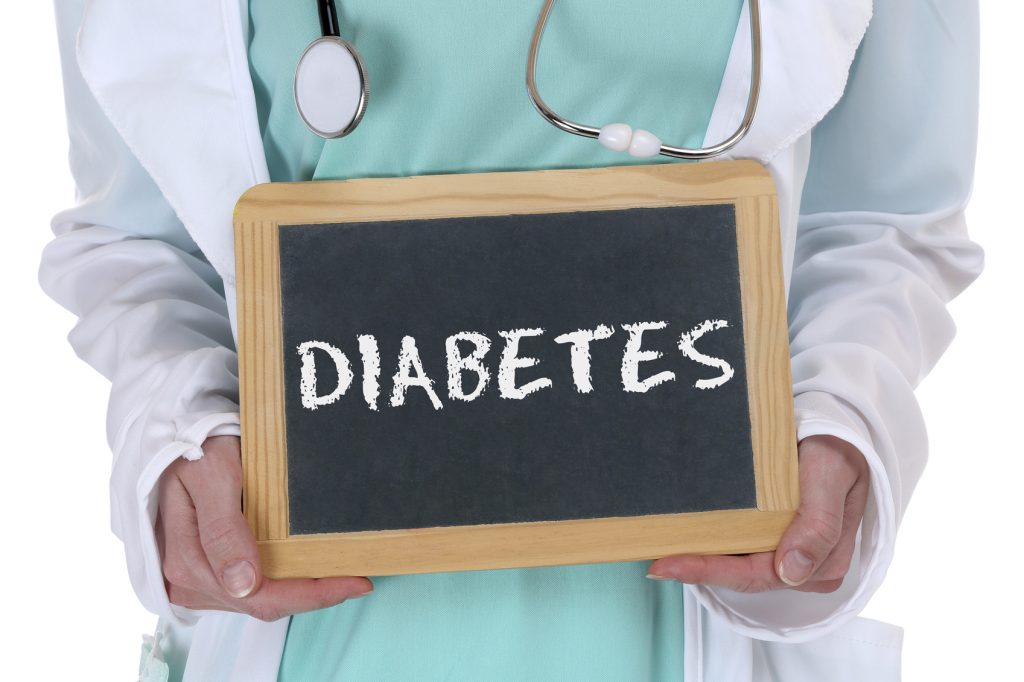
Although most people concentrate on the teeth for an attractive, healthy smile, the appearance of the gums cannot be ignored. It has been said that the gums are the frame of the picture. You can have a nice picture, but an ugly frame will destroy the appearance. We will often use soft tissue to enhance the appearance of the tissue in conjunction with new restorations. The following case demonstrates one such example:
This case illustrates a 35-year old physician who was missing two teeth in the front and had a bridge placed many years ago. She did not like the appearance of the bridge and wanted to replace it. The before photos illustrate how an unsightly indentation in the gum tissue compromised the appearance of the bridge. In addition to replacing the bridge, we wanted to improve the appearance of the tissue in order to improve her “picture frame”. Utilizing minimally invasive tunneling procedures, a collagen graft was placed to build out the tissue and create an appearance that a tooth was present, but it’s missing. The improvement was seen immediately at the time of surgery, and after several weeks in a new temporary bridge, the result is even more apparent. As you can see, we have created the illusion that there are teeth present by simply reconstructing the tissue.
If you find that you have gums that are affecting your smile and self-confidence, soft tissue grafting may just be the solution you’ve been looking for. Not only will it improve the look of your gums but will also give you a discreet way to bring back a reason to smile.
If you would like more information about tissue grafting, call Dr. Cabrera in Chicago, IL at 312-994-7939 or visit www.perioimplantchicago.com.
Dr. Peter O. Cabrera proudly serves Chicago and all surrounding areas.

